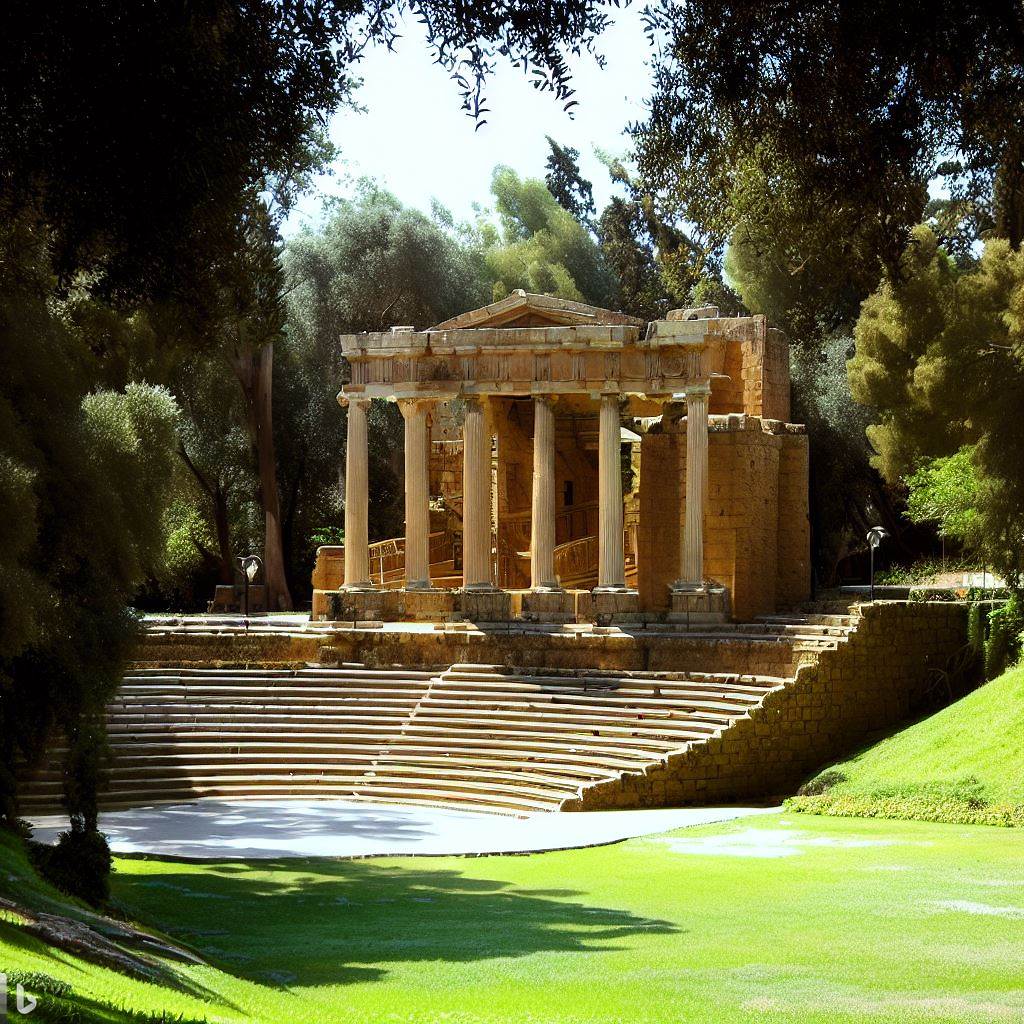Greek Theater
Fantastic representation of classical theater, seating for performances and shows of all kinds. With first-class access and sound aids. An atmosphere of classical Greece in Parque Europa.
Greek theater is an ancient form of theater that originated in ancient Greece around the 5th century BC and developed as an important form of entertainment and artistic expression. Here is some information about Greek theater:
- Origin and context: Greek theater developed as part of religious festivals in honor of Dionysus, the god of wine and fertility. These festivals included dramatic competitions and theatrical performances.
- The playwrights: In Greek theater, the most famous playwrights were Aeschylus, Sophocles, and Euripides. Their works addressed mythological and human themes, exploring fate, honor, power, and morality.
- The structure of the theater: Greek theaters were open-air and had a semicircular shape with seating on the hills. They were designed to accommodate a large audience. The main structure of the theater included the orchestra (the space for the performance), the skene (building behind the orchestra), and the koilon (seating area for the audience).
- Masks and costumes: Actors in Greek theater wore masks to represent different characters and emotions. These masks helped amplify facial expressions and distinguish different roles. Additionally, actors wore elaborate tunics and costumes that matched the characters they portrayed.
- Chorus and actors: The chorus played an important role in Greek theater. It consisted of a group of men who sang and danced in the orchestra, commenting and reflecting on the events of the play. The actors, on the other hand, played the main roles and carried the plot forward.
- Themes and genres: Greek theater addressed a variety of themes, from tragedies to comedies. Tragedies explored serious themes and moral conflicts, while comedies focused on humorous situations and satirized society and politicians.
- Legacy and influence: Greek theater left a lasting legacy in the history of Western theater. Its techniques, structures, and themes have influenced later theatrical forms and dramatic narrative in general.
Greek theater is a testament to the rich artistic and cultural tradition of ancient Greece. Through their works, the Greeks explored the human condition and created a form of entertainment that continues to be appreciated and studied today.

